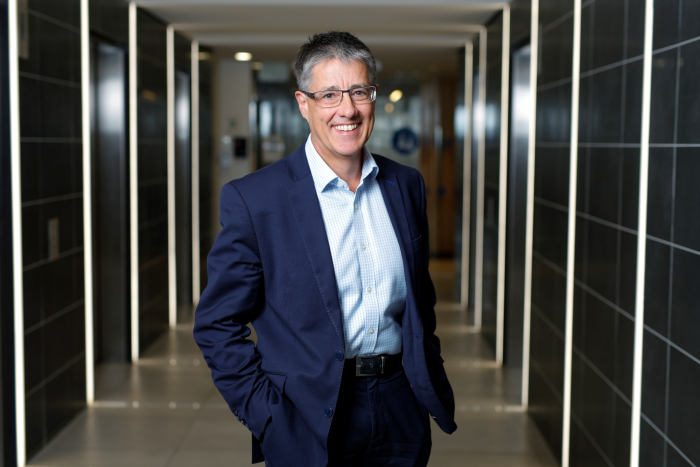The world is less predictable than ever amid complex geopolitics, divergent economic trends and the rise of AI, which is now dominating investment market narratives.
For New Zealand investors, strong performance of offshore markets may trigger a temptation to focus on recent winners – especially as returns on savings accounts and term deposits continue to fall.
But the key to long-term investment returns is diversification, says Andrew Bascand, co-CEO and CIO of Harbour Asset Management, which was named New Zealand Overall Fund Manager of the Year in the 2025 Morningstar Awards.
“Spreading investments across asset classes, sectors and geographies is a smart way to manage your wealth over the long-term,” Bascand says.
“Diversification has never been more important than it is right now, because recent returns have been concentrated in a narrow range of investments. It wouldn’t be surprising to see a return of volatility to markets. History tells us that diversified portfolios of growth assets have, over the long-term, tended to deliver stronger returns. Even in the most turbulent times, it’s better to be in the market than sitting on the sidelines, if you want to grow your wealth.”
Owning a wide range of assets helps to balance volatility
It can be tempting to chase recent winners – particularly after the strong run from US equities and global tech stocks in recent years. But markets shift and sector leadership rotates, which is why diversification remains one of the most powerful tools for long-term investors.
A look at the top-performing asset classes for each year underlines why diversification matters: 2020 saw New Zealand equities on top, followed by global shares in 2021, New Zealand cash in 2022, and then global shares again since 2023.
Recent headlines about US-China tariff tensions over rare earths - critical components for AI and advanced tech - have underscored the risks of concentrated exposure. Diversification means that when there are unexpected downturns in one sector, that can be balanced out by surprising gains in another industry or region.
“The thing that worries me most is investors having all their eggs in one basket,” says Bascand. “When you invest in a diversified managed fund, you get broad exposure across a wide range of asset classes. Depending on the fund, you could get international shares, local shares, bonds, cash and listed real estate. You might get exposure to private assets and other alternatives, too. Your money is pooled with other investors’, which gives you access to a wider range of investment opportunities.”
 Andrew Bascand
Andrew Bascand
A globally diversified managed fund can be especially useful for New Zealanders who own residential property, which tends to make up a large proportion of a household’s net worth. Since 2022, homeowners in many parts of the country have seen no meaningful growth in house prices, even as inflation has risen. And with term deposits paying around 4%, and savings rates even lower, growth has been elusive.
Many growth-focused managed funds, on the other hand, have provided higher-than-inflation returns and buffered against weakness in the local economy.
“Term deposits and savings accounts are great for providing certainty in the short term,” Bascand points out. “But in contrast, diversified managed funds are the best solution to develop long-term wealth.”
Outsourcing to the experts can help grow your wealth
The Harbour team manages more than $20 billion in total assets and offers a range of different managed funds to fit various investor profiles. Bascand says that individual investors need to navigate their way in finding the right fund for their situation, and remember their situation is likely to change over time.
A financial adviser can provide guidance, including regular reviews to check the fund is still the right choice.
“We know New Zealanders lead busy lives, and they don’t necessarily have time to follow local and global markets in detail, so our professional fund managers do it for them,” says Bascand. “Managed funds are completely hands-off. There are no tenants to manage, no need to buy and sell shares, and no need to cycle in and out of term deposits. Our investors benefit from our research and expertise, so they don’t need to watch the stock market, or react to the latest economic news.”
Investing in growth assets through a managed fund lets investors target higher returns, while balancing the risk with diversification and responsive management.
“We know that some of this year’s headlines have been unsettling, but diversified portfolios have performed well. Markets are dynamic, and conditions can change,” says Bascand.
“Looking ahead, diversification can help Kiwi investors ride out the ups and downs of the markets. We’ve been in this game a long time – we know what works, and we’ve seen firsthand that investors who stay the course are more likely to be rewarded over time.
“It’s been an incredibly strong six months for returns. That’s not unusual. What would be unusual is a market without some volatility or correction. That’s when diversification really proves its worth, giving investors the confidence to stay the course.”
Explore Harbour Asset Management’s funds.
The Product Disclosure Statements for Harbour Investment Funds, issued by Harbour Asset Management, are available at www.harbourasset.co.nz. This article is not intended as financial advice.






